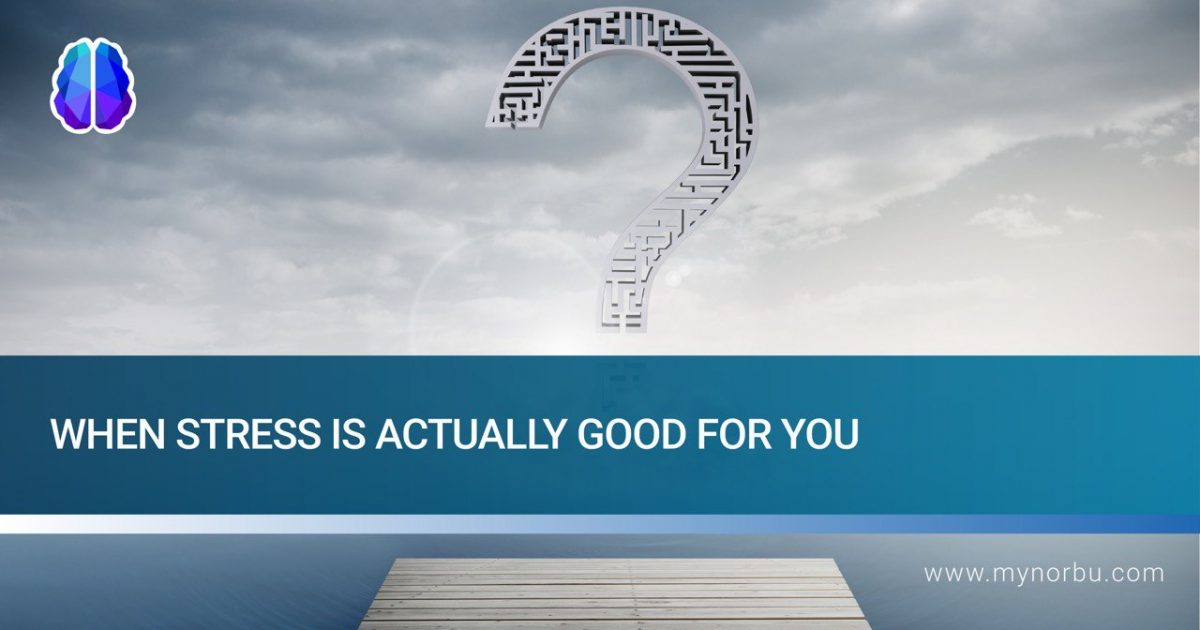When Stress Is Actually Good for You
We rarely hear people say, “I’m really feeling stressed. Isn’t that great?” But if we didn’t have some stress in our lives—the “good stress” variety—we’d feel rudderless and unhappy. If we define stress as anything that alters our homeostasis, then good stress, in its many forms, is vital for a healthy life. Bad stress can even turn into good stress, and vice versa.
Good Stress vs. Bad Stress
“Good stress,” or what psychologists refer to as “eustress,” is the type of stress we feel when we feel excited. Our pulse quickens and our hormones surge, but there is no threat or fear. We feel this type of stress when we ride a roller coaster, compete for a promotion, or go on a first date. There are many triggers for this good stress, and it keeps us feeling alive and excited about life.
Another type of stress is acute stress. It comes from quick surprises that need a response. Acute stress triggers the body’s stress response as well, but the triggers aren’t always happy and exciting. This is what we normally think of as “stress” (or “bad stress”). Acute stress in itself doesn’t take a heavy toll if we find ways to relax quickly. Once the stressor has been dealt with, we need to return our body to homeostasis, or its pre-stress state, to be healthy and happy.
Chronic stress is another form of bad stress. It occurs when we repeatedly face stressors that take a heavy toll and feel inescapable. A stressful job or an unhappy home life can bring chronic stress. This is what we normally think of as serious stress. Because our bodies aren’t designed for chronic stress, we can face negative health effects (both physical and emotional) if we deal with chronic stress for an extended period of time.
Yes, you can add good stress to your life! Ideally, you choose activities and set goals that make you feel good, happy, and excited. To gauge whether or not an activity is worth your time, pay attention to how the thought of it makes you feel. Do you feel excited? Is it a “want to,” or a “have to”? Be sure your “want to” activities are all things you really do want to do, and your “have to” activities are all absolutely necessary.
How Good Stress Can Become Bad Stress
Good stress can become bad for you if you experience too much of it. (Adrenaline junkies know this firsthand.) This is because your stress response is triggered either way, and if you’re adding that to chronic stress, or several other stressors, there is a cumulative effect.
Be in tune with yourself and acknowledge when you’ve had too much. You may not be able to eliminate all stress, but there are often ways that you can minimize or avoid some of the stress in your life, and this can make it easier to handle the rest.
If you can avoid the most taxing forms of stress, you’ll have more resilience against other types of stress that are unavoidable.
How Bad Stress Can Become Good Stress
Not all forms of bad stress can become good stress, but it is possible to change your perception of some of the stressors in your life. This shift can change your experience of stress.
The body’s stress response reacts strongly to perceived threats. If you don’t perceive something as a threat, there is generally no threat-based stress response. If you perceive something as a challenge instead, the fear you would normally experience may turn into excitement and anticipation, or at least resolve. You can often make the shift in perception by:
- Focusing on the resources you have to meet the challenge
- Seeing the potential benefits of a situation
- Reminding yourself of your strengths
- Having a positive mindset (getting into the habit of thinking like an optimist)
As you practice looking at threats as challenges more often, it becomes more automatic, and you experience more good stress and less bad stress.



